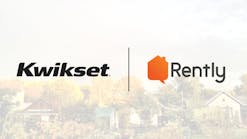IHS: Smart home market to continue its exponential growth
According to a new report from IHS Markit, the global smart home market is expected to grow by a factor of five to reach more than $192 billion in 2023, which is up from substantially from $41 billion in revenues the market saw just last year.
Among the fastest growing device types, according to Blake Kozak, Principal Analyst for Smart Home and Security Technology at IHS, include lighting, smart speakers and connected major home appliances. The U.S. led all countries in 2018, representing about 35% of global market revenue, followed by China which accounted for an 18% share.
“The brilliance of the smart home is that it can be molded to suit the requirements of any kind of consumer, from the strictest demands of power users to the simplest automation needs of dabblers,” said Kozak. “Irrespective of consumer tech-savviness, the smart-home market has bourgeoned into a consumer technology heavyweight, eager to move beyond the basics of security and single-family homes and into uncharted opportunities. However, these uncharted opportunities are coming with concerns about privacy and the technology’s readiness for primetime. The remainder of 2019 and start of 2020 will be a pivotal time for the smart-home market as companies and service providers fine-tune their strategies and reposition to compete with the smart home juggernauts—as well as newcomers looking to upend the status quo.”
Kozak said companies looking to make waves in the smart home market include IKEA and newcomers such as Wyze, which makes DIY home security cameras, motion detectors, smart light bulbs and electric plugs.
Major players are also expected to make pivotal strategy changes to enhance their competitiveness. Examples include Google, which recently ended its “Works with Nest” program. In another example, Amazon Alexa achieved compliance with the Health Insurance Portability and Accountability Act (HIPPA). For its part, Ring is launching into the small-medium businesses (SMB) segment.
U.S. Smart Home Penetration on the Rise
According to IHS, U.S. smart-home penetration exceeded 38 percent in 2018. However, the market’s further progress could be impeded by privacy concerns.
“Rapid innovation often breeds speculation and mistrust,” Kozak said. “Because of that, smart-home companies should be as transparent as possible regarding data usage. They also should focus on edge-based processing, which reduces the need for cloud-based computing systems that send private data over the internet. The smart home should also make greater efforts to comply with standards and regulations for sectors such as security, healthcare and senior care. By having more standards and regulations in place, innovation in the smart home will be less a source of anxiety for consumers and instead become a cause for optimism and a fulcrum for peace-of-mind.”
For more information about IHS Markit’s "Smart Home Device Database," click here.


